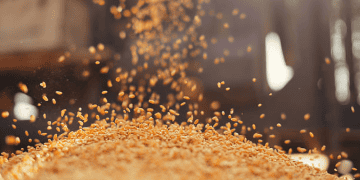The Philippines is likely to increase its corn imports for animal feed next year due to expected lower local production. The United States Department of Agriculture (USDA) predicts that the country’s corn imports will rise to 1 million metric tons in the 2024–2025 marketing year, up from 800,000 metric tons in the current year.
This increase is largely due to bad weather affecting local corn yields and a growing demand for animal feed from livestock and poultry farmers. The USDA estimates that domestic corn production will be around 7.8 million metric tons in 2024–2025, which is slightly less than the 8 million metric tons produced last year.
The livestock and poultry sectors greatly depend on corn-based animal feed, and their growth is fostering a greater need for corn imports to make up for the shortfall in local production. Some farmers are worried about how increased imports might affect their livelihoods, highlighting the need to find a balance between importing corn and supporting local agriculture.
In light of these challenges, the Philippine government is looking into ways to boost local corn production. This includes investing in agricultural technology, improving infrastructure, and providing financial help to farmers. These efforts aim to lessen the country’s dependence on imports and promote a sustainable domestic corn industry.
The USDA also points out that global corn production is expected to rise, which could give the Philippines more choices for sourcing imports. However, fluctuating global prices and potential trade issues remain worries for countries that rely on corn imports.
As the Philippines gets ready for the next marketing year, those involved in the agriculture sector are keeping a close watch on developments, advocating for policies that support both the animal feed industry and local corn farmers.
Breaking supply chain news is just a click away at The Supply Chain Report. Enhance your knowledge of international trade at ADAMftd.com with free tools.
#PhilippinesCornImports2025 #USDAForecast #AnimalFeedDemand #CornProductionChallenges #AgriculturalTechnology #LivestockSector #PoultryIndustry #SustainableAgriculture #GlobalCornMarket #FoodSecurityPhilippines

















